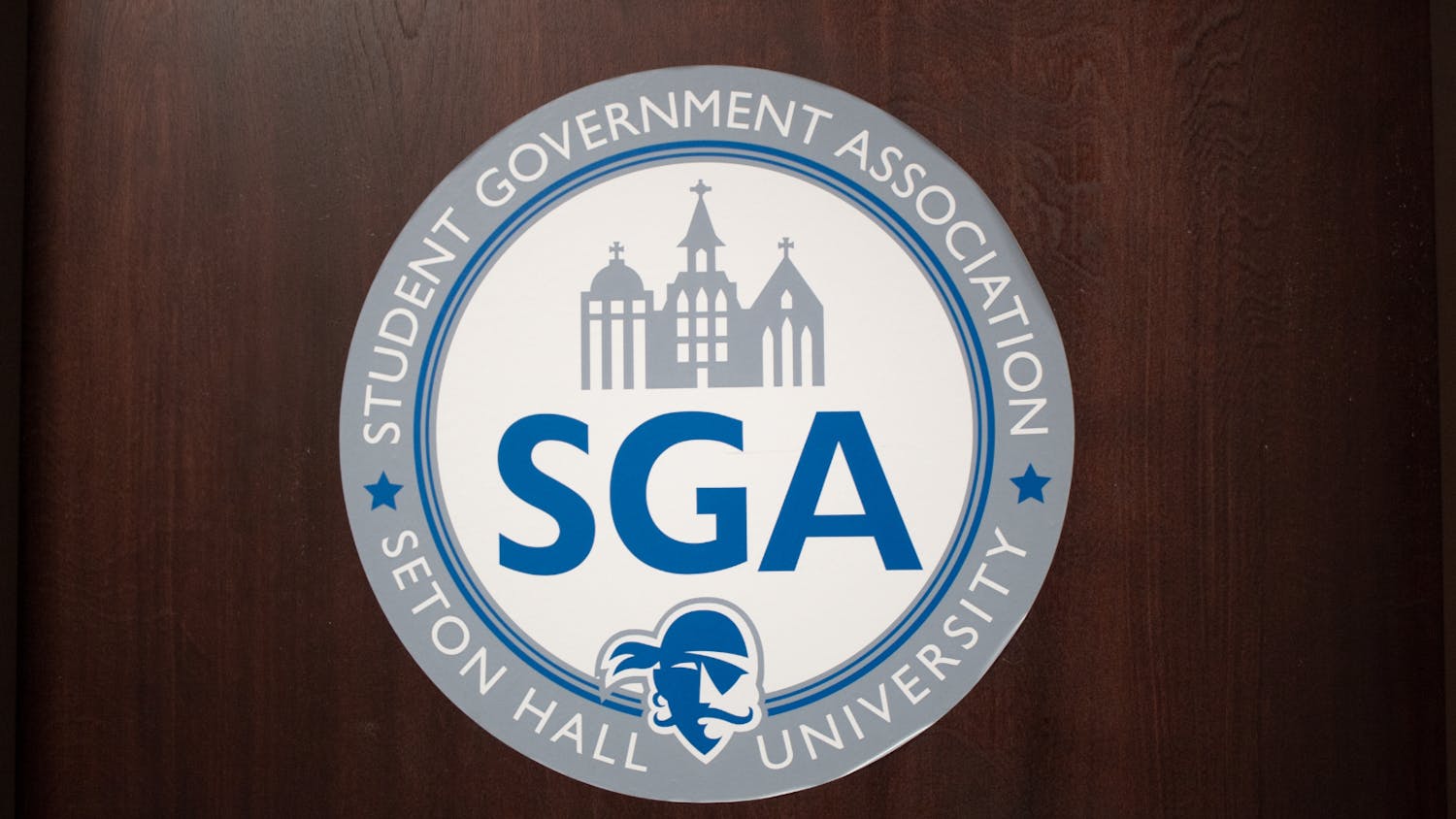Seton Hall criminal justice professor Giuseppe Fazari was hired by the United States Agency for International Development to help further reinforce the administration of justice in Ukraine’s Supreme Court.

Fazari commented further on what his job in Ukraine entailed.
“The principal objectives of my visits to the country were to provide a comprehensive analysis including recommendations of the judiciary’s case management processes and to develop a training curriculum for appellate and cassation-level judges that would equip them with both the theory and practices of modern case flow practices and procedures,” Fazari said.
The overarching goal, according to Fazari, is to provide judges with the skills essential to improve their understanding of effective case management and the courts’ case-processing capacity.
While in Ukraine, his official title for the purpose of this project was United States Subject Matter Expert.
According to an article on Seton Hall’s website regarding Fazari’s position, “the Nove Pravosuddya Justice Sector Reform Program (New Justice) in Ukraine was established and designed by USAID to support, among other responsibilities, the judiciary’s mission to serve its citizenry and society and to create and continually improve upon its administration so as to safeguard an independent, accountable, transparent, and effective justice system.”
The article went on to describe the five objectives set forth by the aforementioned New Justice Program.
These objects are to “strengthen judicial independence and self-governance, increase accountability and transparency of the judiciary to citizens and the rule of law, enhance the administration of justice, to strengthen the quality of legal education, and to protect access to justice while expanding human rights.”
Fazari went on to comment on his qualifications for the position and his prior experience.
Prior to coming to Seton Hall, Fazari served in several executive management capacities for the New Jersey Judiciary, including as Chief Administrative and Operations Officer.
In those positions, he had the overall responsibility in the areas of “financial management, human resources, information systems, case flow management, probation services, jury utilization, facilities, records management, and court services and projects.”
He went on to describe how he was chosen for the position stating, “apart from the career I had in the New Jersey Judiciary, key stakeholders in the Ukraine Judiciary were aware of the work I conducted for other domestic and international entities.”
“They were also familiar with my work as the Lead Developer for the National Association for Court Management’s Core Competencies for Court Administrators, in addition to the professional guides that I co-authored and chaired on court security, business continuity management, court administration, and achieving and sustaining the green court,” Fazari said.
He was offered the role of consultant early this year. He then accepted the assignment with “the understanding that my visitations would not interfere with my course schedule during the semester.
According to the article on Seton Hall’s website, “following his consultation on a wide range of issues that affect the disposition of appellate level cases, Fazari provided extensive training in the principles and application of caseflow management to a large cohort of judges and judicial assistants.”
Taina Vasquez, a senior criminal justice major and former student of Fazari’s, commented on his position
“I think it’s cool that professor Fazari worked in Ukraine and assisted them with their justice administration,” Vasquez said. “It is so refreshing to see a professor with actual experience in the subject matter that they are teaching.”
As for his opinion on the political climate in Ukraine, Fazari commented that his focus during the course of project was strictly limited to the administrative process of Ukraine’s judiciary.
"I cannot comment on the government’s politics other than to say that the country has taken a series of steps since the ratification of their constitution that is indicative of their consensus to achieve and sustain an effective system of justice,” Fazari said.
When asked about the situation with Trump, the Bidens and the whistleblower who is claiming a quid pro quo situation between the president and Ukraine regarding an investigation into presidential candidate Joe Biden and his son, Hunter, Fazari said that it involves the executive branch and is outside his scope of study and experience in judicial administration.
“Apart from that, my work in the judiciary requires that I remain apolitical,” Fazari said, “and so I am not in a position to respond publicly about the matter.”
Rhania Kamel can be reached at rhania.kamel@student.shu.edu.





